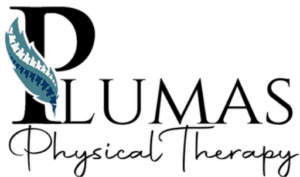Suffering From Pain & Inflammation? The Villain Could Be Your Diet!

If you’re suffering from chronic pain or inflammation, good nutrition can help you find relief. Eating the appropriate foods can help your body recover from a variety of ailments! Maintaining a healthy and nutritious diet is an important aspect of any physical therapy routine.
Inflammation and chronic pain can be minimized by eating well, reducing stress, and exercising regularly. Contact our office now to schedule a consultation with one of our physical therapists to learn more about how our nutritional services might help you!
What causes inflammation?
As an immunological response to trauma or sickness, inflammation is a normal aspect of the body’s healing process. Inflammation and pain generally go hand-in-hand, so if you’re in pain, something in your body is definitely inflamed. The immune response is initiated in order to start the healing process when you have an infection, a wound, tissue damage, or an accumulation of toxins in your body.
Without inflammation, injuries would not be able to heal completely; however, if the inflammatory response goes on too long, it can cause chronic inflammation. Chronic inflammation is a cause for worry, and your physical therapist will want to help you get it under control. Without treatment, chronic inflammation can lead to much worse outcomes, such as arthritis, diabetes, heart disease, and even some cancers.
Rest and medicine are two of the most common treatments for persistent inflammation. Traditionally, primary care physicians would advise you to reduce your physical activity. A lack of exercise, on the other hand, can make you worse off in the long term than learning simple stretches and exercises from a physical therapist.
Additionally, drugs can have a variety of negative side effects and may be habit-forming. The good news is that dietary treatment for pain and inflammation is completely natural!
The importance of an anti-inflammatory diet
Many individuals who follow an anti-inflammatory diet report fewer pain and inflammation symptoms. Switching to a diet that compliments the removal of pollutants can assist speed up the healing process as the body purifies itself during the inflammation phase. An anti-inflammatory diet has three basic components:
- Cook less red meat. It is best to avoid red meat altogether in an anti-inflammatory diet, but if you must add some in there, it should be very scarce. One small piece of steak, one time per week, should be your maximum limit. The proteins in red meat require extra work from your kidneys to process; therefore, eating a lot of it will slow down your healing process. The good news is that chicken and fish are just fine for an anti-inflammatory diet. Enjoy them with all of those servings of vegetables!
- Eat more whole grains. In order to strengthen your body’s immune response as much as possible, you’ll want to try and avoid simple carbs and sugars completely. That means no pastries, no donuts, and no white bread.
- Consume less dairy. Dairy products should also be extremely limited, so be mindful of serving very little cheese or milk with anything. Whole grains such as barley, oats, brown rice, and wheat are best when practicing an anti-inflammatory diet.
- Include more vegetables. One of the best ways to reduce inflammation is to increase your veggie intake. This diet is most successful if you eat up to nine servings a day, with the vegetables preferably served raw. Brussels sprouts, cabbage, cauliflower, and broccoli are some of the best options. It is okay to substitute fruits for a couple of your servings, in order to break it up, but vegetables should be your main ingredient for the most part.
Call our clinic for an appointment
If you stick to the diet listed above, you should see your pain and inflammation symptoms start to significantly reduce. You can also combat chronic inflammation by maintaining a healthy body weight, getting daily exercise, and learning how to manage your stress.
To learn more about how we can help you abide by a strict nutrition plan to decrease inflammation and boost overall wellness, contact our office today. One of our physical therapists would be happy to set up a consultation and speak with you!
Sources:
- http://www.apta.org/PatientCare/Nutrition/
- http://www.apta.org/Blogs/PTTransforms/2016/11/16/Nutrition/
